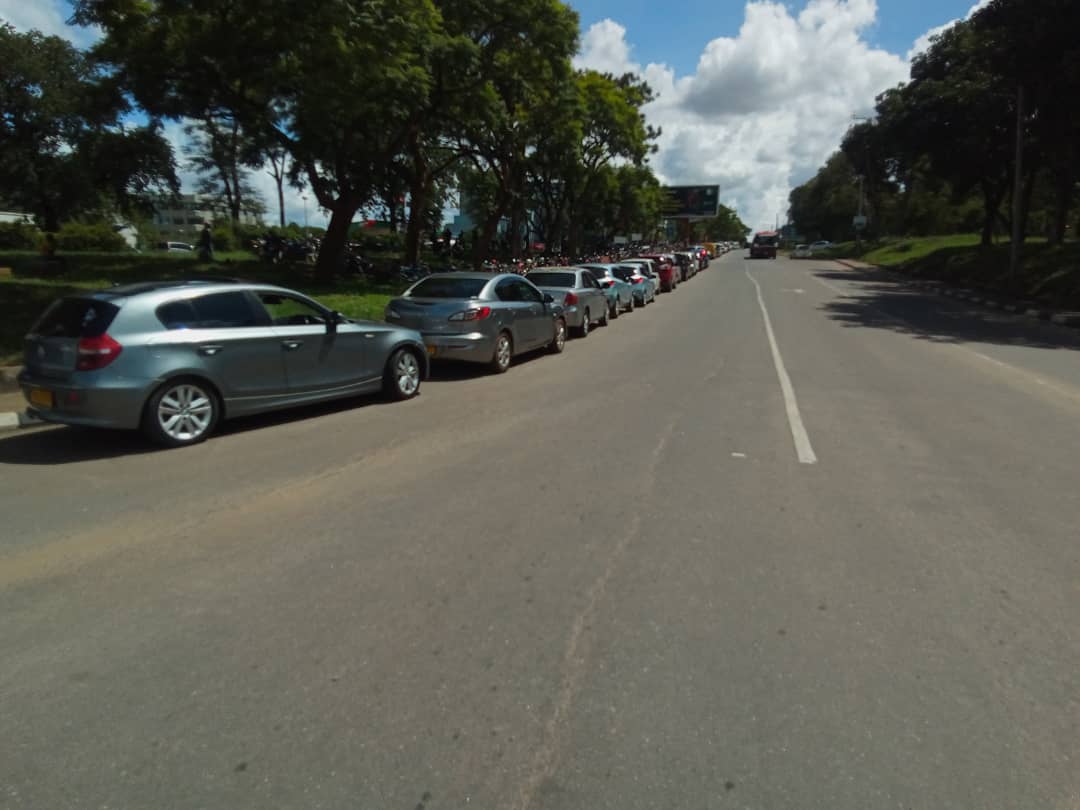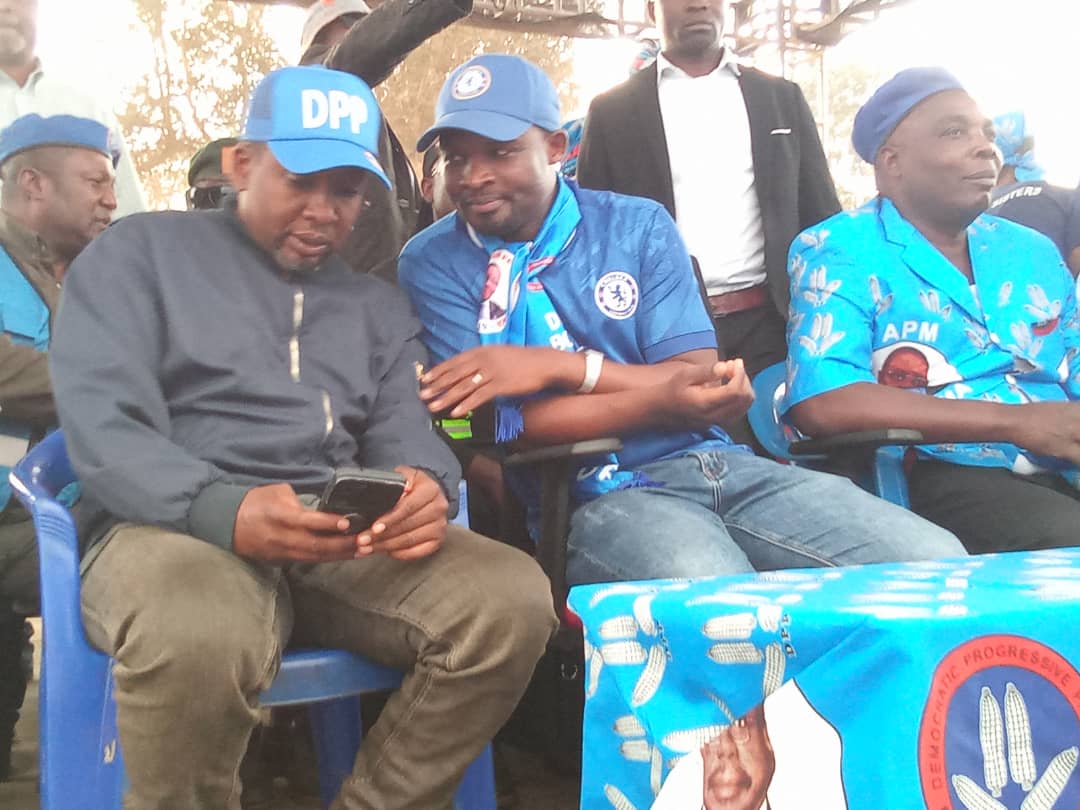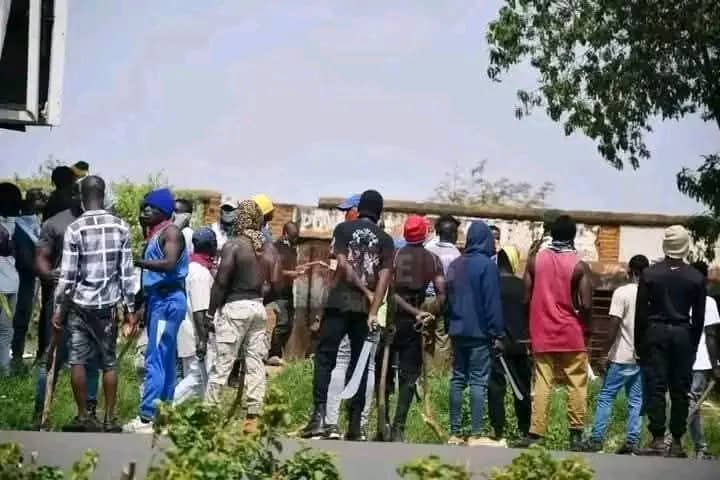Prepared by Burnett Munthali
Welcome remarks
Thank you, Mr. Edwards Kambanje, for taking the time to participate in this interview. As an individual with a unique perspective on Malawi’s economic and energy landscape, your insights will be invaluable in understanding the persistent fuel shortages and their impacts on the country. The questions below are designed to explore the causes, effects, and potential solutions to the ongoing fuel crisis.
1) Understanding the root causes:
Burnett Munthali: In your view, what are the core reasons behind the persistent fuel shortages in Malawi?
Edwards Kambanje: The problem is multifaceted. Primarily, Malawi’s economy is heavily dependent on imports, and the country’s foreign currency reserves are critically low. This makes it difficult for importers to secure enough US dollars to pay for fuel supplies. Additionally, the limited refining capacity within Malawi forces us to rely on imports, making the fuel sector vulnerable to fluctuations in international markets and logistical bottlenecks.
2) Impact of foreign exchange constraints:
Burnett Munthali: How significant do you think the shortage of foreign currency is in exacerbating the fuel crisis in Malawi?
Edwards Kambanje: The shortage of foreign currency is a significant factor. Without adequate reserves, fuel importers face difficulties in transacting with suppliers, leading to delays in replenishing stocks. This is worsened by the high demand for foreign currency in other sectors of the economy, leaving little room for energy importation.
3) Government’s role:
Burnett Munthali: How would you assess the role of the Malawian government in handling the fuel shortage? Are there any policy gaps that need to be addressed?
Edwards Kambanje: The government has made some efforts, but these measures are reactive rather than proactive. There is a gap in policy formulation, particularly in terms of managing foreign exchange inflows and addressing long-term fuel supply solutions. There needs to be a coordinated strategy to not only secure immediate fuel supplies but also to develop sustainable domestic sources of energy.
4) Fuel distribution systems:
Burnett Munthali: How efficient is Malawi’s fuel distribution system, and where do you see room for improvement?
Edwards Kambanje: The fuel distribution system in Malawi is plagued by inefficiencies. The supply chain is not streamlined, leading to delays in fuel delivery, especially to remote areas. Improving infrastructure, such as roads and transport logistics, would help ensure fuel reaches all parts of the country in a timely manner.
5) Economic implications:
Burnett Munthali: What are the broader economic impacts of the ongoing fuel shortages on both businesses and households?
Edwards Kambanje: The fuel shortage has ripple effects across the entire economy. For businesses, particularly those in manufacturing and transport, it raises operational costs and reduces productivity. For households, it means higher costs of living due to increased prices for goods and services, and the general inconvenience caused by fuel scarcity.
6) Effect on public services:
Burnett Munthali: How have the fuel shortages affected essential public services such as transportation, healthcare, and education?
Edwards Kambanje: Public services have been severely impacted. Public transportation, which most Malawians rely on, has been irregular, causing delays in travel and affecting the workforce. The healthcare system also faces challenges, with ambulances unable to operate efficiently. Similarly, schools and other public services are disrupted due to fuel shortages.
7) MERA’s response:
Burnett Munthali: How would you rate the effectiveness of the Malawi Energy Regulatory Authority (MERA) in managing fuel supply and regulation during this crisis?
Edwards Kambanje: MERA’s response has been lukewarm. While it plays a regulatory role, it has been unable to offer tangible solutions to the supply issues. Its focus has largely been on price controls, which have done little to alleviate the underlying causes of the shortages.
8) Regional fuel trade:
Burnett Munthali: How does the fuel crisis in Malawi compare with the situation in neighboring countries? Is Malawi being isolated in this issue?
Edwards Kambanje: Malawi’s situation is unique in the sense that, while neighboring countries face their own fuel challenges, our economic fragility and reliance on imports place us in a more precarious position. Countries like Tanzania have developed better regional trade partnerships, which help buffer them from global fluctuations.
9) Private sector involvement:
Burnett Munthali: What role should the private sector play in addressing fuel shortages, and what incentives should be introduced for them to participate actively?
Edwards Kambanje: The private sector should be a key player in improving the fuel supply chain. Incentives such as tax breaks for fuel distributors, as well as fostering competition, can encourage more efficient supply management. Additionally, private investment in infrastructure and local fuel production would reduce Malawi’s reliance on imports.
10) Political influence and fuel scarcity:
Burnett Munthali: Do you believe political factors or mismanagement have contributed to the ongoing fuel shortages? How can these issues be mitigated?
Edwards Kambanje: Yes, political mismanagement has played a role. There have been cases where political interference in the energy sector has disrupted proper planning and execution of fuel distribution. To mitigate this, the government should prioritize professionalism and non-partisan management in the energy sector.
11) Renewable energy solutions:
Burnett Munthali: Should Malawi consider investing more in renewable energy sources as a long-term solution to reduce dependence on imported fuel?
Edwards Kambanje: Absolutely. Renewable energy sources such as solar, wind, and hydroelectric power can help diversify Malawi’s energy mix, reducing our dependence on imported fuel. While the upfront costs are high, long-term investment in renewables will provide sustainable, cost-effective solutions.
12) Immediate policy recommendations:
Burnett Munthali: What immediate policy actions would you recommend the government to take in order to stabilize the fuel supply situation?
Edwards Kambanje: The government needs to secure stable foreign currency reserves by improving its export sector and reducing unnecessary imports. Additionally, increasing transparency in fuel procurement and distribution would help build trust among stakeholders.
13) Long-term energy security:
Burnett Munthali: What long-term strategies should Malawi adopt to ensure consistent fuel supply and energy security in the future?
Edwards Kambanje: Malawi should focus on energy diversification, developing domestic sources of fuel such as biofuels and enhancing infrastructure for alternative energy. At the same time, regional cooperation on energy trade will ensure long-term security and stability.
14) Public perception and trust:
Burnett Munthali: How do you think the general public perceives the government’s handling of the fuel shortage? Is there a loss of trust?
Edwards Kambanje: There is a growing sense of frustration and distrust towards the government. Many people feel that the government’s inability to address the fuel crisis is a sign of poor leadership. Public trust can be restored if the government shows genuine commitment to addressing the root causes and offering lasting solutions.
15) Future outlook:
Burnett Munthali: Looking ahead, what do you foresee as the possible outcomes if Malawi does not address the current fuel supply challenges adequately?
Edwards Kambanje: If Malawi does not take urgent and decisive action, the country will continue to face stagnation in its economic growth, social unrest, and rising poverty levels. The fuel crisis will exacerbate existing problems, making it even harder for businesses and households to function efficiently.
Closing remarks
Thank you, Mr. Kambanje, for your time and thoughtful responses. Your insights are crucial in painting a clearer picture of the fuel shortage crisis in Malawi and the necessary steps to address it. We hope that your views will inspire meaningful discussions and solutions to this pressing issue.




